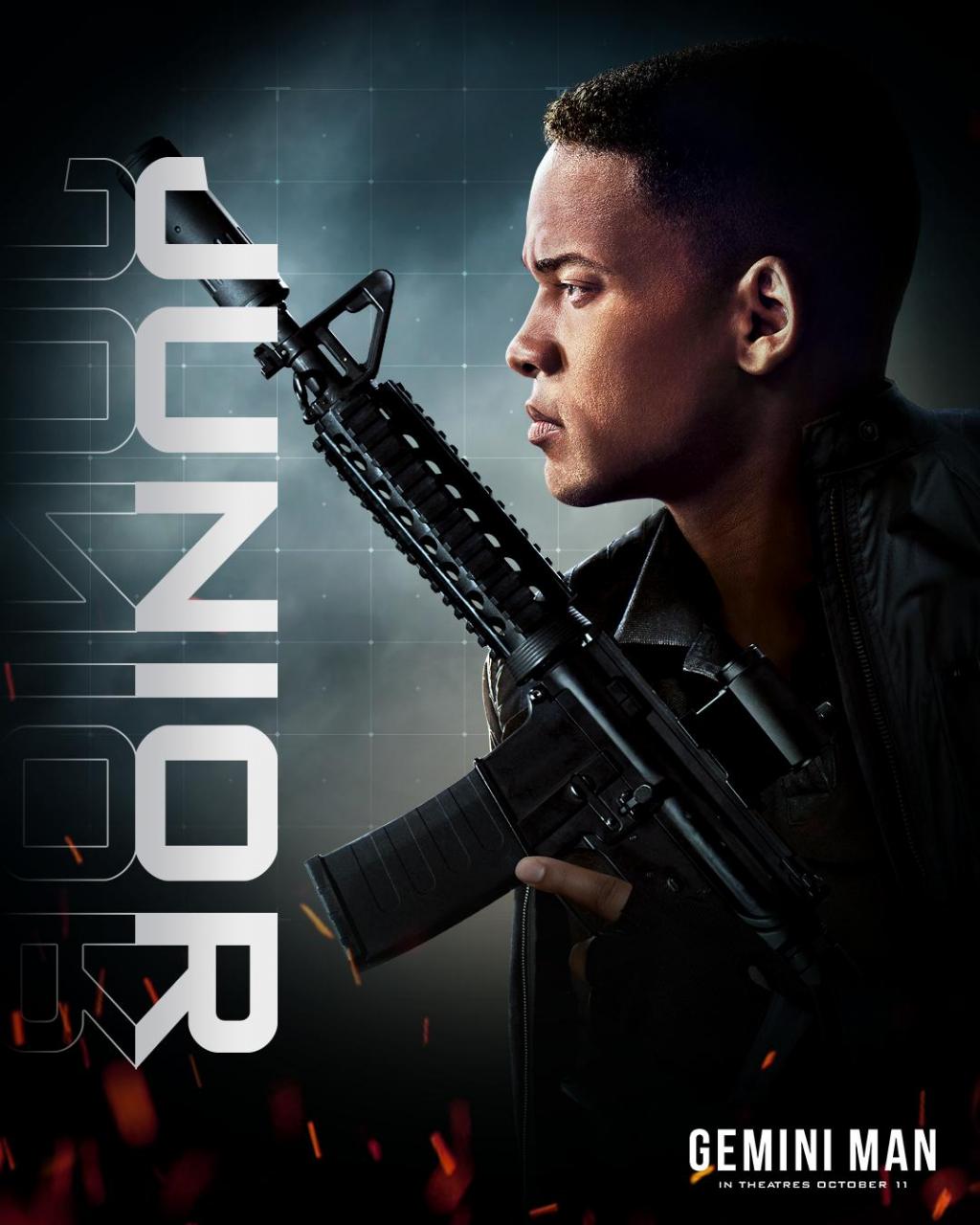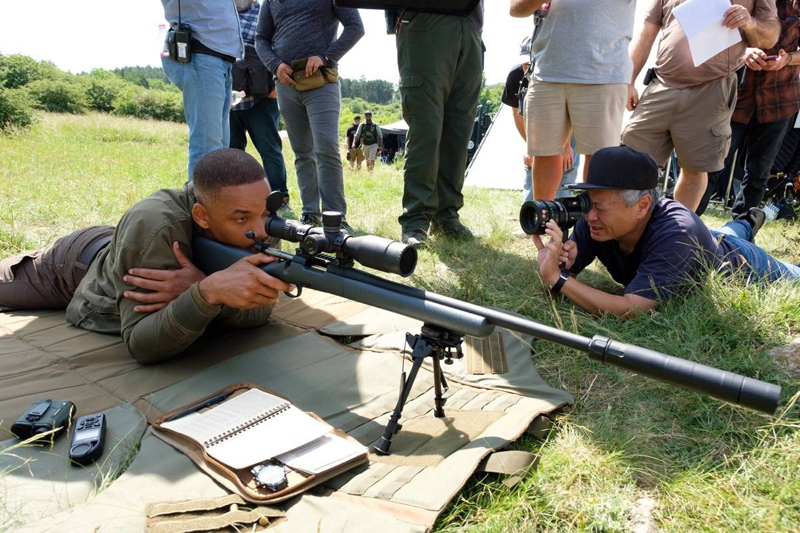Paramount Pictures invited ComingSoon.net to speak with director Ang Lee in New York for this weekend’s Gemini Man. We talked with him about comparisons to his 2003 Hulk, as well as bringing a two-decade old spec script to the screen. Check out the interview below!
RELATED: Gemini Man Featurette Highlights Digital Human Technology
Gemini Man follows the story of an older, elite assassin named Henry Brogan (Will Smith) who is trying to retire. In the film, he’s suddenly targeted and pursued by a mysterious young operative that seemingly can predict his every move. Directed by Ang Lee, Gemini Man is produced by renowned producers Jerry Bruckheimer and David Ellison along with Smith, James Lassiter, Dana Goldberg, and Don Granger.
The film stars Will Smith (I Am Legend) in dual roles; Clive Owen (Closer, Children of Men) who is the lead villain/ the head of a cloning program; Mary Elizabeth Winstead (Birds of Prey) as an operative working for the same agency as Smith’s character; and Benedict Wong (MCU, Deadly Class).
The rights to Gemini Man were acquired by Skydance after having been in development for two decades. Jerry Bruckheimer (Pirates of the Caribbean, The Amazing Race) is producing with Don Murphy set to serve as executive producer.
RELATED: Will Smith Won’t Return For The Suicide Squad
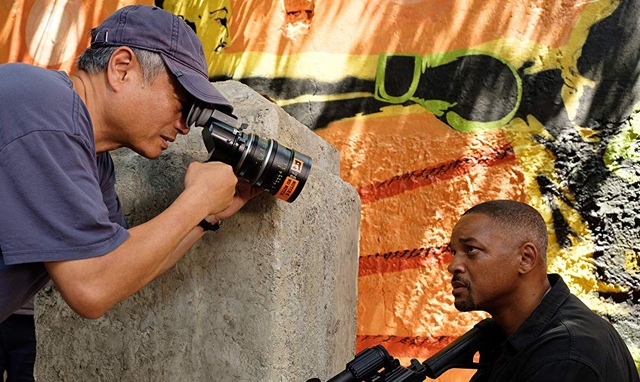
ComingSoon.net: Where do you begin with Junior? How do you know it’s going to be realistic enough to put it in a movie?
Ang Lee: I don’t know.
CS: You don’t even know.
Lee: No, because you haven’t found it. So in my head, it should work. 20 years ago, I’d done the movie “Hulk”, so it started digital. And then I did the tiger so I got some idea. I believe in this media. It’s a logical way of showing digital media. I was just so curious and so wanted to do it that I just told them, “I know it’s a lot of money. In theory, it should work, but because I have not done it, no one has done it in this way, especially, you want to do it?” And they say, “Ah, let’s do it, yeah.”
CS: You mentioned “Hulk.” It was interesting to see the parallels between the two of them because they both deal with duality and they both deal with fathers experimenting on children. Was this a revisiting of those themes for you?
Lee: Yeah, a little bit of unfinished business from that movie. This is something they try to hide, to cover-up who they are. That’s probably me. I don’t know. I don’t know what made me make movies. I do have some father issues and being a father myself., but that’s just how I make movies. The subject matter of nature versus nurture really got to me. I’m a cinema person, and just in my head when I heard the idea was to use Will Smith, by that time we didn’t have Will Smith, it’s just hope that he will do it. We have two images, one is younger, they coexist. They all look so real in this medium. What an uncanny feeling. It’s kind of existential. It really makes you wonder about your own existence. And then, what would you tell your younger self? I’m old enough to think that kind of thing. And also, see your trajectory. It’s a story and it’s the same dramatic feeling. You can write about it, but you’ve never seen it with this media, so it’s really attractive. Actually, in my head, it works. I know it’s not just about science, because I’ve made movies long enough to know that it’s not about size, because like “Pi”, the tiger with the water, when everything’s perfect mathematically that’s 10 percent of my work. The most work I put in is I try to make defects, make it look like somebody shot it, just mess it up. That takes the longest time. I like to do that and I believe I can do that, me and my team. Probably nobody else can at this time. We want to do it, we can do it. It’s kind of a leap of faith. It’s a feeling.
CS: You talk about messing up the effects to make them more invisible to people?
Lee: That’s the hardest part, but 90 percent of it works.
CS: The frame rate, that seems like it’s something that goes against that, or is a double-edged sword.
Lee: It’s a challenge. It’s pretty fair. People will be intimidated by 3D and more data, more details. Yes, it’s more scary and most people wouldn’t try. But you also have more material to work with. We have 40 times more data, which means we have 40 times more the chance to flop or succeed. You just have more to work with. And when you’re in 3D, it’s just sharper. Your mindset is sharper. So for both the filmmaker and for the viewer, it’s a different place.
CS: It’s kind of like cropping the photo. The bigger the photo you have, the more chance you have to center in on something and tailor it to your vision.
Lee: It’s not just the size. It’s the angle. Most of ours is the viewing angle, when you scan it with enough detail. If you get a chance to see the 4K version, it’s a different world. That’s what we shot for. But even just that alone, 60 frames, not even 120 at 2K, it’s a different mindset the way it was, a regular movie. It’s just different. You have to make the movies differently. I think because of that, it made me want to do this, because you cannot put on makeup, erase wrinkles and do a different hairstyle and act out and call a younger actor, or cast Will Smith’s son to play him and call that a clone. With this media, it won’t allow that. You force yourself to, like everything else, like day for night, at the vast moonlight, we cannot just throw a big light or an old fashioned day for night. It’s not what your eyes see. When we see it with two eyes with an angle, you won’t allow that. So you have to invent a new way to do it. I think Junior being a CG character is a requirement with this. It’s a whole package.
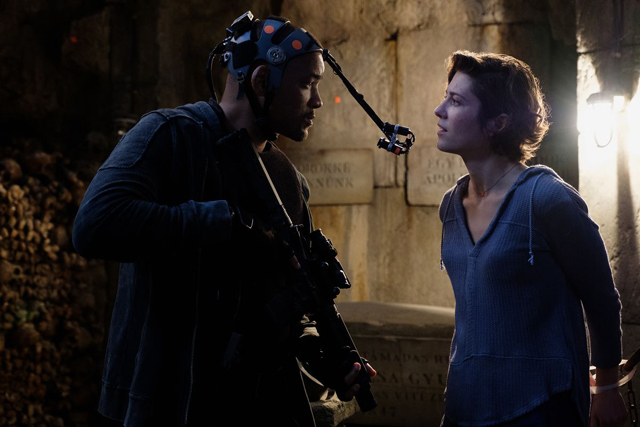
CS: There are other films that are utilizing de-aging by putting the dots on the face and they’re using the actual actor. Did you test different versions of it or did you think from the start we want to do completely CG?
Lee: We do the whole body and not just the face. We go into details probably nobody did. We did layers. You know, somebody can give you a better run on the science of it. We did it from scratch. That’s why I don’t like to call it de-aging, not just brush up. Age does more mysterious things than just the wrinkles. At first I was saying, “I wish Will was a little older, because is he too young?” And once we started, it’s kind of sad what life does to you, like every layer of skin, bones, like just how you age, how your eyes and the enamel of your teeth… It’s all just the subtle changes. It’s very inspiring, actually.
CS: I remember during a Q&A for this movie, Will Smith was talking about how he was acting out Junior scenes, you would tell him to act not as good. So did you have an image when with Junior of being a certain era of Will Smith?
Lee: Yes, but he never played this kind of role. So that’s like, a quarter of the reference. Some “Six Degrees of Separation”. A lot of “Bad Boys” but none of that looked like this. So his own childhood, and also his relationship with his father, who’s a military guy. It all came into play
CS: Did he have an opinion on the look of his younger self, as well as his older self?
Lee: I’ve never seen him younger except in his movies like everybody except his friends and family, himself. He’s never seen himself in 3D, so no one really knows that image. When he was young, it was 24 frames, it’s jittery and flat, a lot of artificial lights, three key lights. And they put on tons of makeup. So now I really want to show it because of this. I showed a test of the makeup, and then no makeup as a comparison, both him and his makeup artists, so we both said we wanted it no makeup. That looks great. It’s like you found a new person. I didn’t force him to. He chose not to have makeup, except injuries and stuff. So it’s really a mixture of things, like shot by shot. We cannot really use his old reference. We look at his old movies with the similar angles, and we also find that half of his old movies, half of the shots don’t look like him. But nobody cares because we know that’s Will Smith. You’re not scrutinizing it. So it’s very confusing. He didn’t go through that part. No, he talked about “act less good” and it’s a lot more complicated than that. It’s not just on what you learn, it’ll take a lot more and he’s really a hard worker. He’s really a hard worker, really good. He’s one of the hardest workers and most disciplined people I’ve ever worked with.
CS: Just piggybacking off of that, you’ve talked a lot about rejuvenating Will Smith for the CG version of the character. But the script has also been around for a while, and it’s a two-decade plus old idea. How did you rejuvenate the script to make it relevant for now?
Lee: When I got the script, it’s a Vietnam War veteran, it’s probably for Harrison Ford or somebody. Before that, it was Clint Eastwood. It’s probably a Korean War veteran. The first thing was Bosnia, yeah, the shootout, the sniper scene. So to me, in some ways, it’s quite dated to the reference, because it’s been a long time. And then, you know you want somebody who is famous, who has been on top for the last 30 years, so there may be two or three people who can do it. And of course, Will Smith wanted to do it. I changed it a lot from the draft I had, because when it was given to me, when I first read it, it was a straight action thriller. It wasn’t really sci-fi. It was a straight genre film. And they thought it’s quite good. I met them in February, they said by the summer they wanted to shoot it. They’re ready to go. And I read the script and I wrote them a letter, a nine-page letter, in which I said I wanted a page one rewrite. I thought they would read the letter and regard it as a polite way to decline. But right the next day they called back, “Oh yeah, we want to do it and take six months to develop it. We’ll wait.” So I was quite touched.
Gemini Man
-
Gemini Man
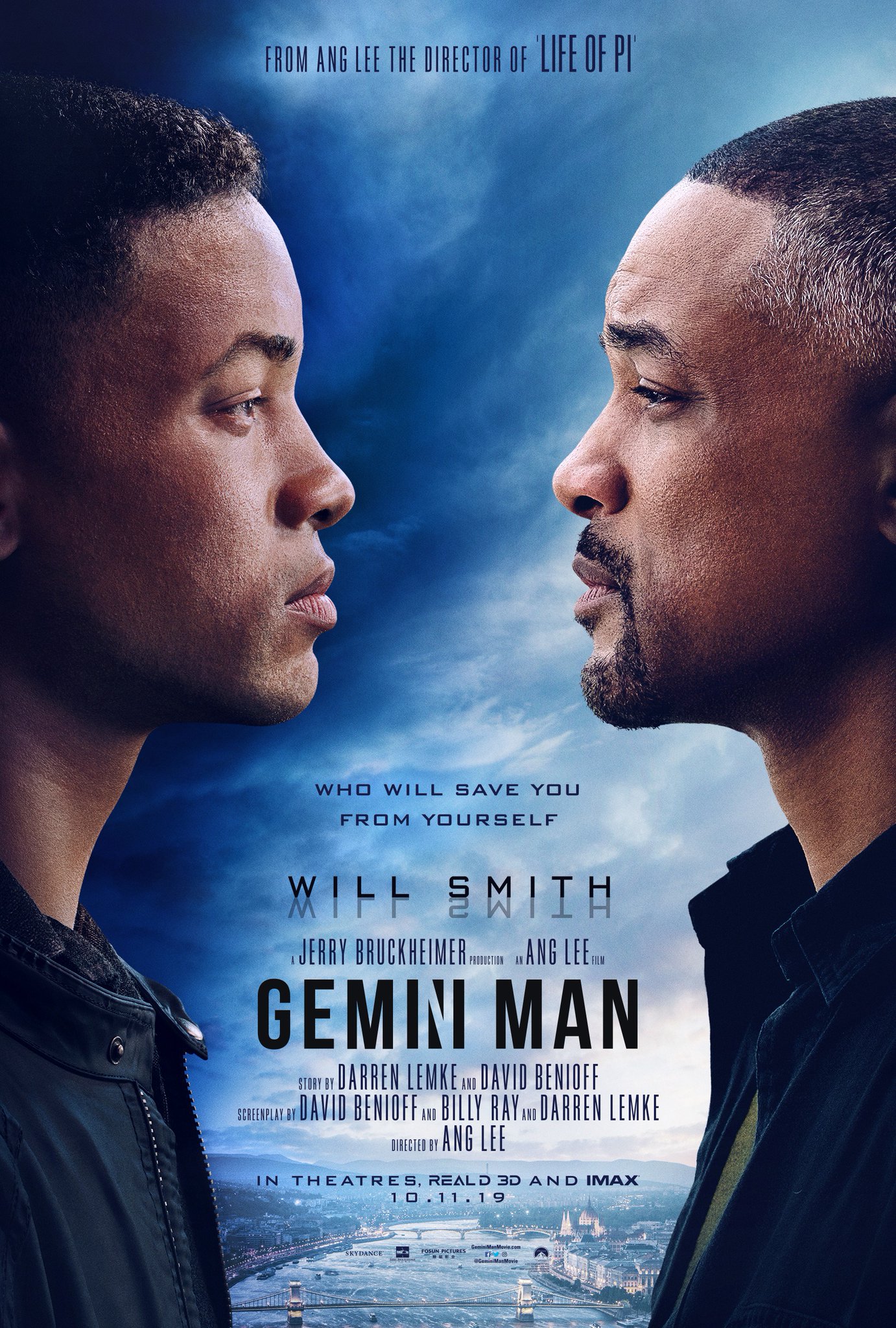
-
Gemini Man
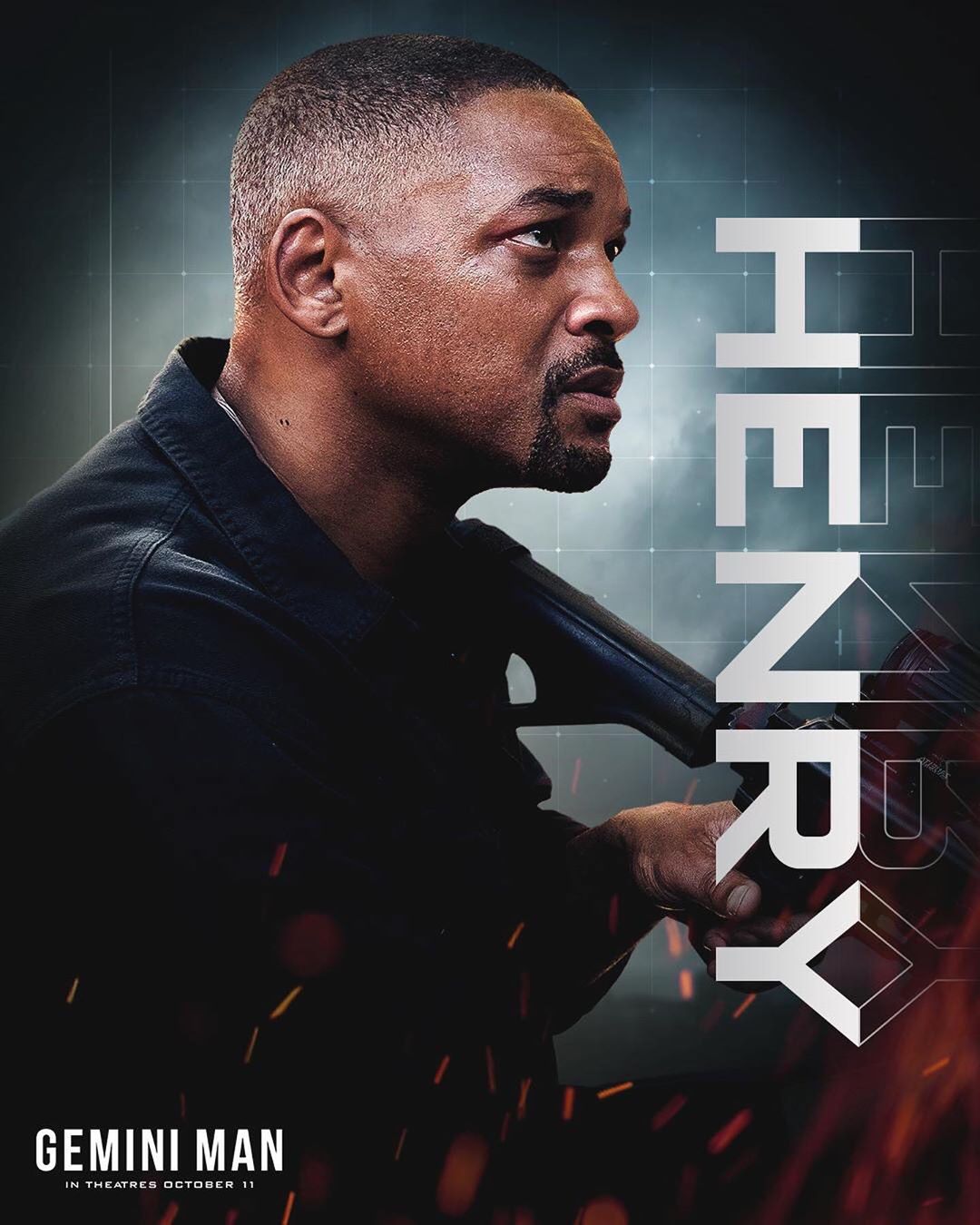
-
Gemini Man
